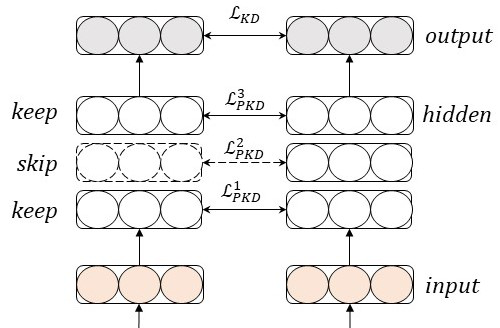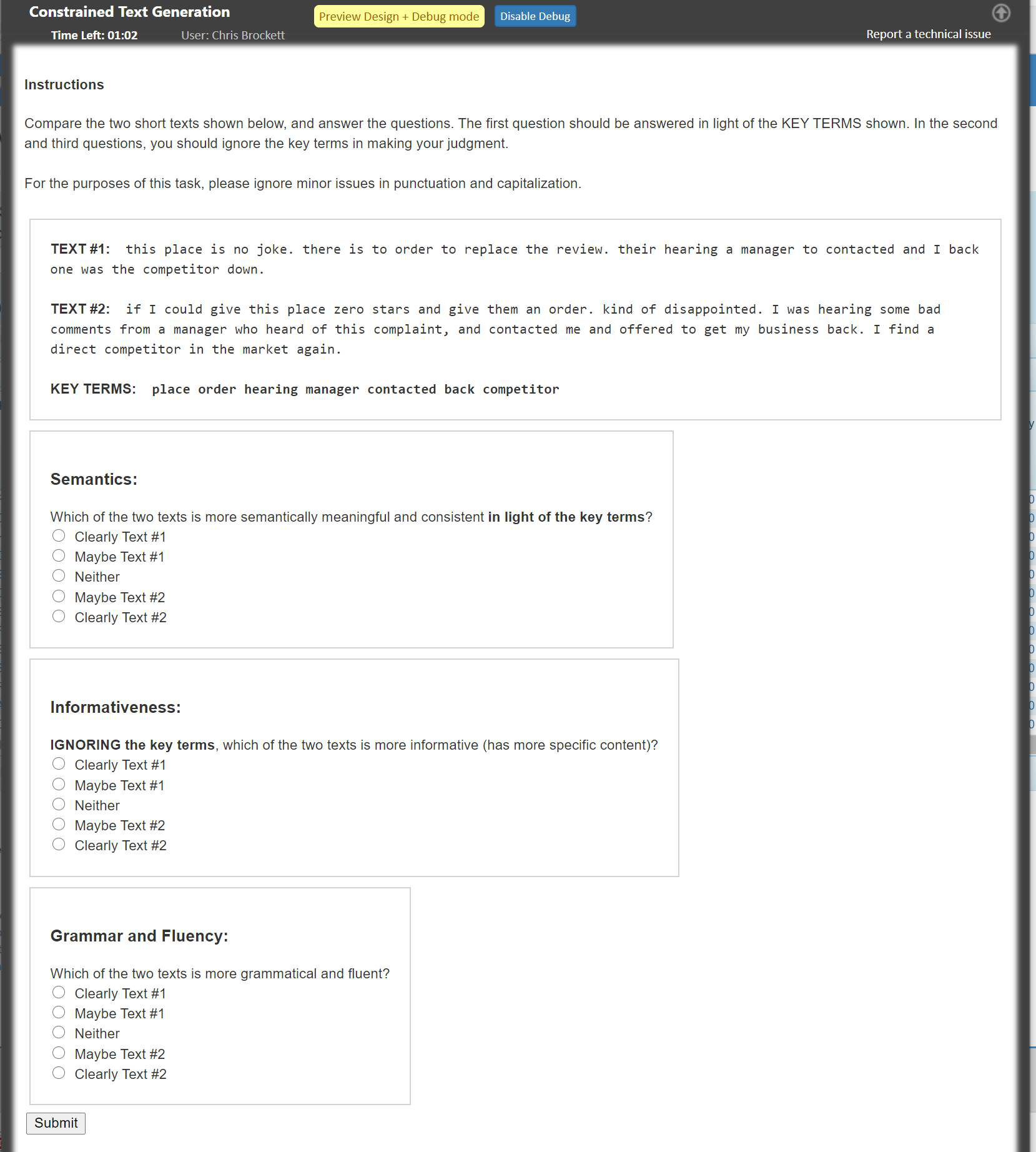Lightweight, Dynamic Graph Convolutional Networks for AMR-to-Text Generation
Yan Zhang, Zhijiang Guo, Zhiyang Teng, Wei Lu, Shay B. Cohen, Zuozhu Liu, Lidong Bing
Language Generation Long Paper

You can open the pre-recorded video in a separate window.
Abstract:
AMR-to-text generation is used to transduce Abstract Meaning Representation structures (AMR) into text. A key challenge in this task is to efficiently learn effective graph representations. Previously, Graph Convolution Networks (GCNs) were used to encode input AMRs, however, vanilla GCNs are not able to capture non-local information and additionally, they follow a local (first-order) information aggregation scheme. To account for these issues, larger and deeper GCN models are required to capture more complex interactions. In this paper, we introduce a dynamic fusion mechanism, proposing Lightweight Dynamic Graph Convolutional Networks (LDGCNs) that capture richer non-local interactions by synthesizing higher order information from the input graphs. We further develop two novel parameter saving strategies based on the group graph convolutions and weight tied convolutions to reduce memory usage and model complexity. With the help of these strategies, we are able to train a model with fewer parameters while maintaining the model capacity. Experiments demonstrate that LDGCNs outperform state-of-the-art models on two benchmark datasets for AMR-to-text generation with significantly fewer parameters.
NOTE: Video may display a random order of authors.
Correct author list is at the top of this page.
Connected Papers in EMNLP2020
Similar Papers
Why Skip If You Can Combine: A Simple Knowledge Distillation Technique for Intermediate Layers
Yimeng Wu, Peyman Passban, Mehdi Rezagholizadeh, Qun Liu,

Modeling Global and Local Node Contexts for Text Generation from Knowledge Graphs
Leonardo F. R. Ribeiro, Yue Zhang, Claire Gardent, Iryna Gurevych,

POINTER: Constrained Progressive Text Generation via Insertion-based Generative Pre-training
Yizhe Zhang, Guoyin Wang, Chunyuan Li, Zhe Gan, Chris Brockett, Bill Dolan,

Q-learning with Language Model for Edit-based Unsupervised Summarization
Ryosuke Kohita, Akifumi Wachi, Yang Zhao, Ryuki Tachibana,
